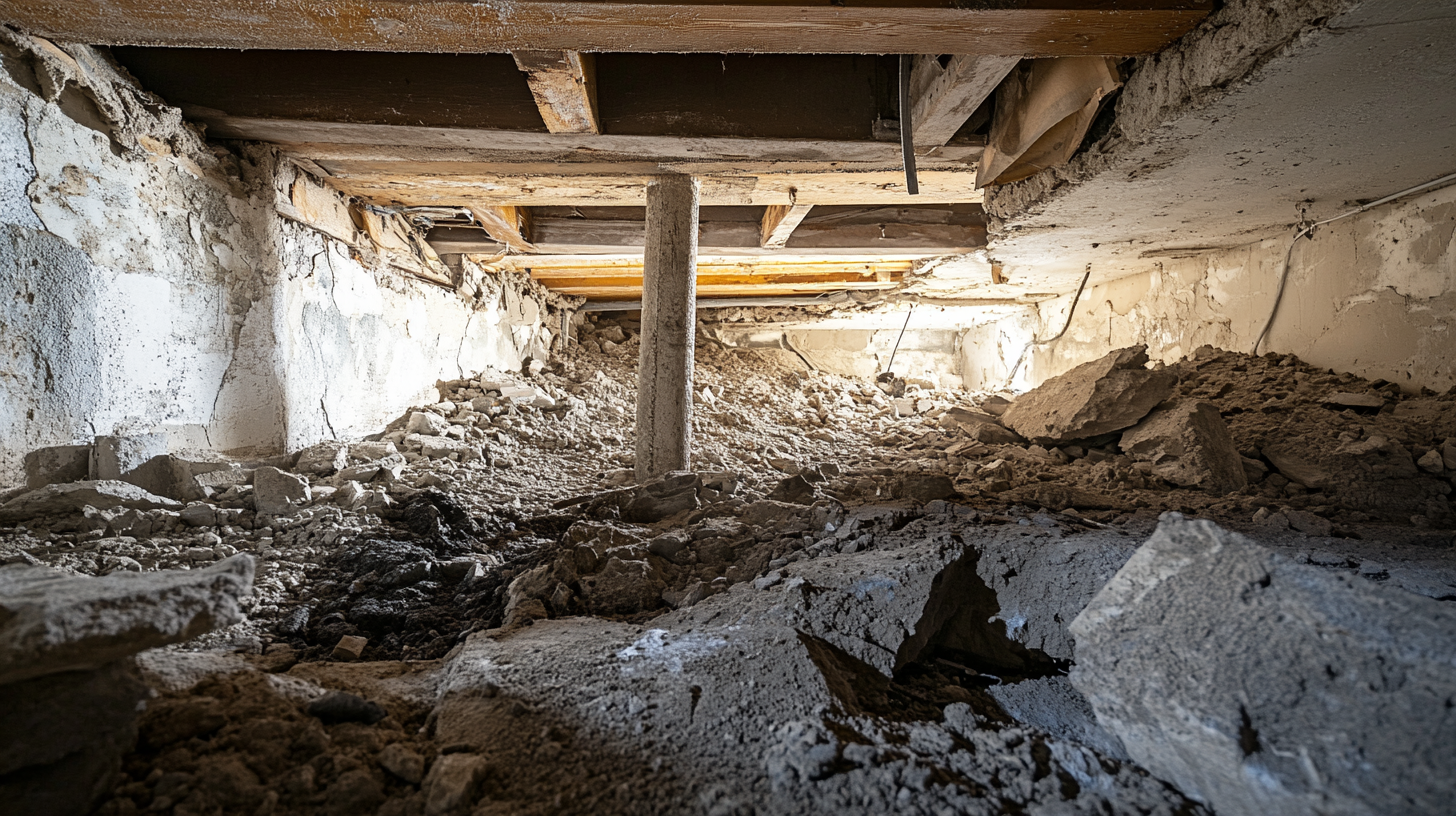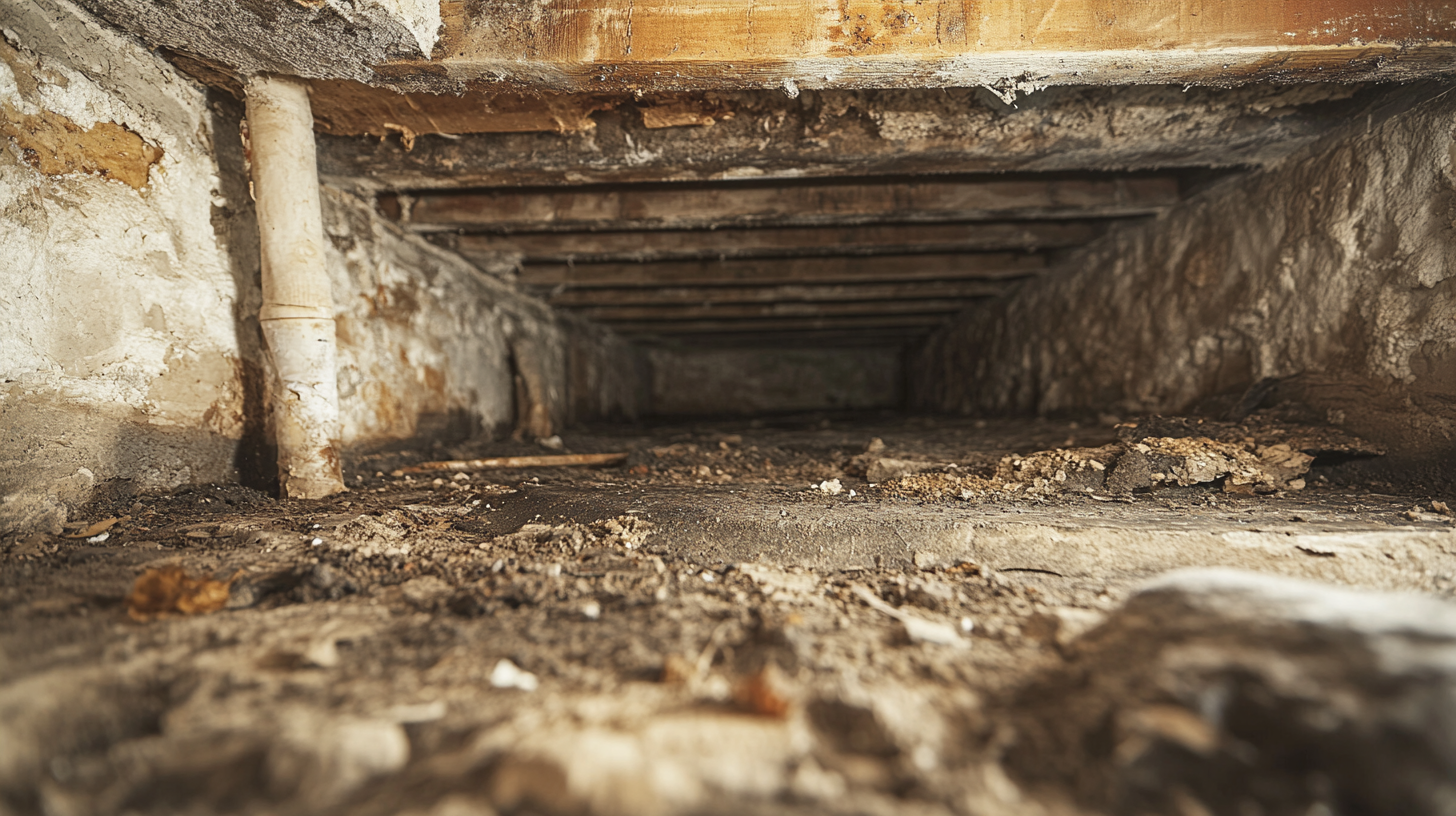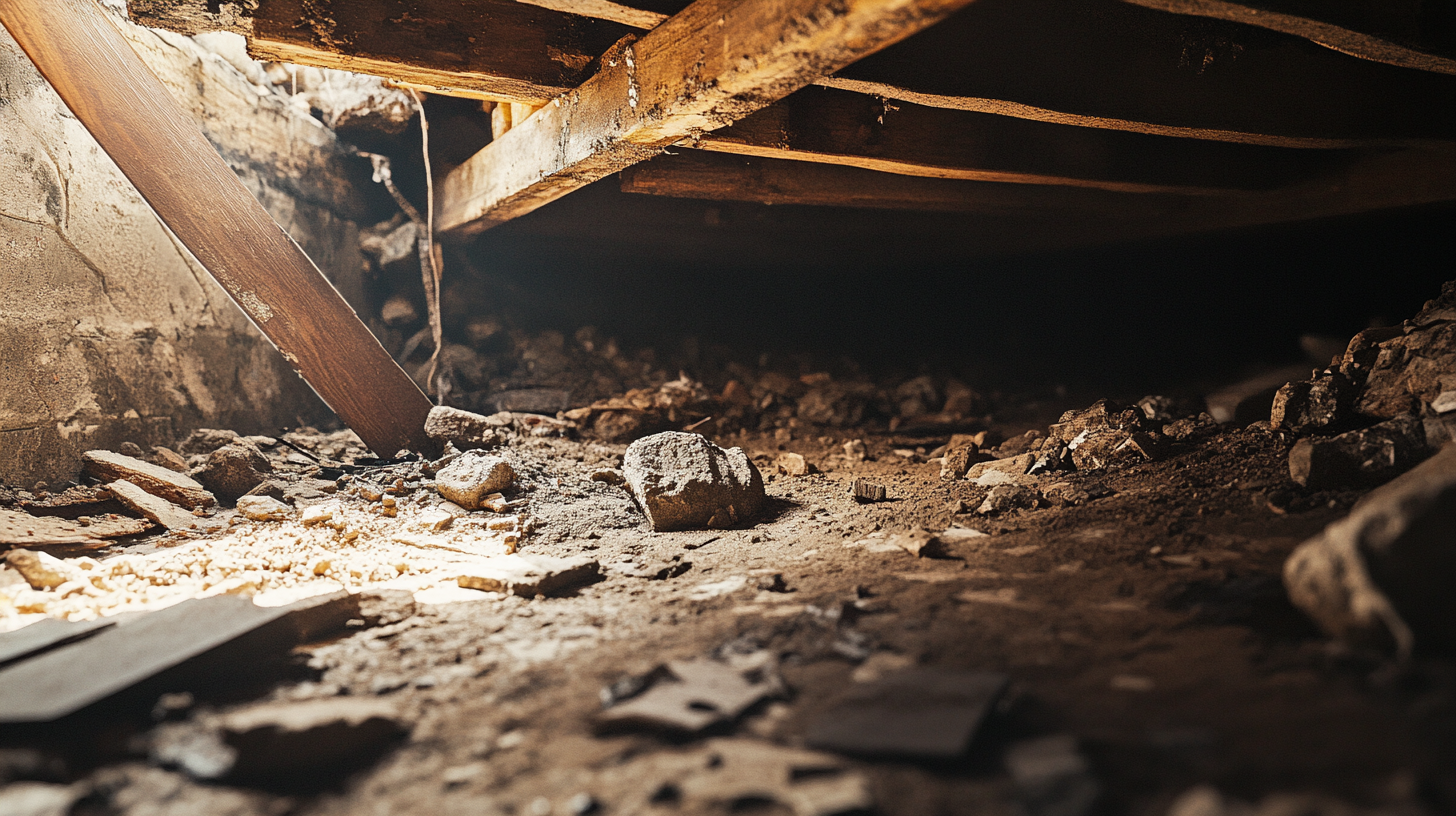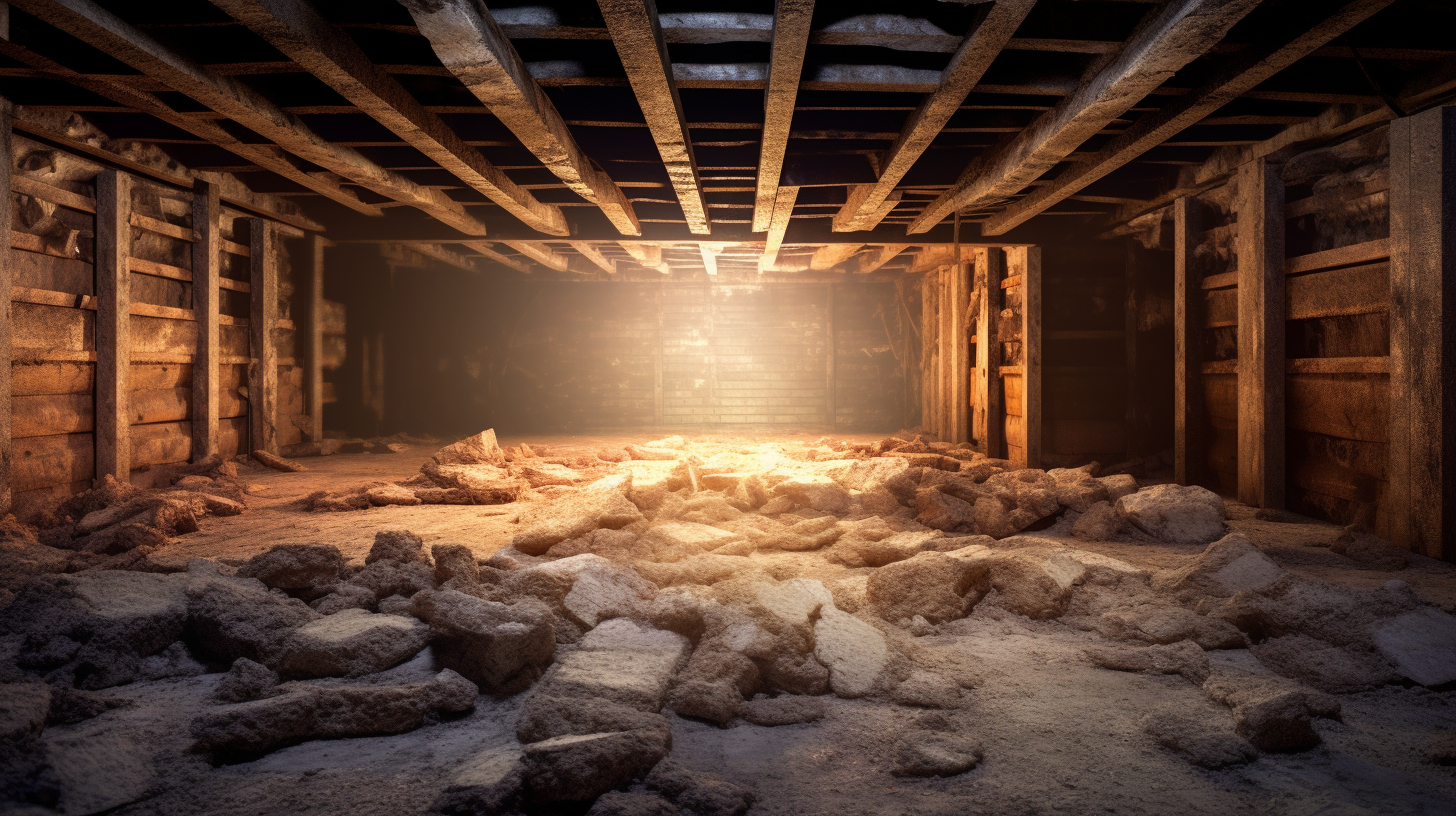Welcome to our latest blog post focusing on the quest for the "Best Insulation for Crawl Space." When it comes to creating a well-insulated and energy-efficient home, selecting the right insulation for your crawl space is a crucial decision. In this article, we will explore various insulation options, their unique benefits, and provide insights to help you make an informed choice that aligns with your home's specific needs and climate conditions.
Comparing Options: Choosing the Best Insulation for Crawl Spaces
As homeowners strive to optimize energy efficiency and indoor comfort, the question of the best insulation for crawl spaces takes center stage. Navigating the array of insulation choices can be daunting, but a well-informed decision can significantly impact your home's overall performance. From traditional fiberglass batts to innovative spray foam and rigid foam insulation, each option presents distinct advantages and considerations. Factors such as moisture resistance, R-value, installation ease, and budget all play a role in determining the optimal insulation for your crawl space. By delving into this comparative analysis, you'll gain valuable insights to confidently select the insulation solution that aligns with your goals for a more energy-efficient and comfortable living environment.
Expert Recommendations: Best Insulation Types for Crawl Spaces
When it comes to insulating crawl spaces, heeding expert recommendations is paramount in achieving optimal results. Two insulation types frequently endorsed by professionals are closed-cell spray foam and rigid foam insulation. Closed-cell spray foam creates a seamless and airtight barrier that not only insulates but also seals against moisture and air infiltration, curbing potential mold growth and reducing energy loss. On the other hand, rigid foam insulation offers exceptional durability and resistance to moisture, making it a popular choice for crawl spaces prone to dampness.
Expert recommendations stress the importance of selecting insulation with a high R-value to ensure effective thermal resistance, which directly impacts energy efficiency. Additionally, ventilation and moisture control remain pivotal considerations when choosing insulation. Professionals often emphasize the necessity of addressing existing moisture issues before insulating, as trapping moisture can lead to long-term structural problems. By aligning with these expert insights and understanding the benefits of closed-cell spray foam and rigid foam insulation, homeowners can confidently make informed choices that elevate their crawl space's energy efficiency and overall functionality.
Key Factors to Consider: Selecting the Best Insulation for Your Crawl Space
Selecting the ideal insulation for your crawl space requires a thoughtful evaluation of several key factors. First and foremost, understanding your crawl space's unique conditions is paramount. Assess whether moisture infiltration is a concern, as this can influence your choice between moisture-resistant options like closed-cell spray foam or rigid foam insulation. Moreover, considering the local climate and your region's temperature fluctuations will guide you towards insulation with an appropriate R-value, ensuring optimal thermal resistance and energy efficiency.
Installation ease and compatibility with your crawl space's structure are also pivotal factors. While closed-cell spray foam excels in filling gaps and irregular spaces, rigid foam insulation offers durability and simple installation. Additionally, budget considerations play a role, as certain insulation types may require a larger upfront investment but offer greater long-term savings through improved energy efficiency. By thoughtfully weighing these factors, homeowners can confidently select the best insulation for their crawl space, ultimately fostering a more comfortable, energy-efficient, and well-protected living environment.
FAQs
-
What is the best insulation type for crawl spaces?
The choice of the best insulation for crawl spaces depends on various factors such as moisture levels, local climate, and structural considerations. Closed-cell spray foam and rigid foam insulation are commonly recommended options due to their moisture resistance, insulating properties, and ability to create an effective air barrier.
-
How does closed-cell spray foam insulation benefit crawl spaces?
Closed-cell spray foam insulation offers excellent moisture resistance and acts as both insulation and an air barrier. It fills gaps and contours to irregular surfaces, providing a seamless seal against both cold air and moisture infiltration, which can be particularly advantageous in crawl spaces.
-
Is rigid foam insulation a suitable choice for all crawl spaces?
Rigid foam insulation is a versatile option, offering durability and resistance to moisture. It's suitable for various crawl space conditions, especially those prone to dampness. However, proper installation and addressing moisture issues beforehand remain crucial for optimal performance.
-
What is the importance of R-value in crawl space insulation?
R-value measures the insulation material's resistance to heat transfer. For crawl spaces, choosing insulation with an appropriate R-value is vital to achieve effective thermal resistance. Local climate and desired energy efficiency goals play a role in determining the ideal R-value for your insulation.
-
Should I hire professionals for crawl space insulation installation?
While DIY insulation is possible, hiring professionals is recommended to ensure proper installation and address potential challenges like moisture control. Experts can evaluate your crawl space's unique conditions, recommend suitable insulation types, and guarantee optimal performance for long-term energy efficiency and comfort.
Contact Trench Guys Today!
Trench Guys will do everything we can to ensure your experience with us is excellent.
Request A FREE Estimate
Request a Free Estimate Form
We will get back to you as soon as possible.
Please try again later.
Checkout Recent Post




Got a Question? We’re Here to Help.
You can arrange an appointment or make an enquiry by phone or email, orget in touch to us via our contact form.
Looking for a reliable and professional company to take care of your crawl space, basement and gutter needs? Look no further than Trench Guys! We have years of experience in the industry and can provide you with top-quality services at a competitive price. Contact us today to get started!
CONTACT INFORMATION
Phone: 478-236-6403
Email: Wedigmiddlega@gmail.com
Address: Macon, GA
Business Hours:
Mon-Fri: 6:00 AM - 5:00 PM
Sat-Sun: Closed
ADDITIONAL INFORMATION
Us Across The Web
Geo
Neighborhoods
Niche
All Rights Reserved | Trench Guys
Privacy Policy | Terms & Conditions | Sitemap



